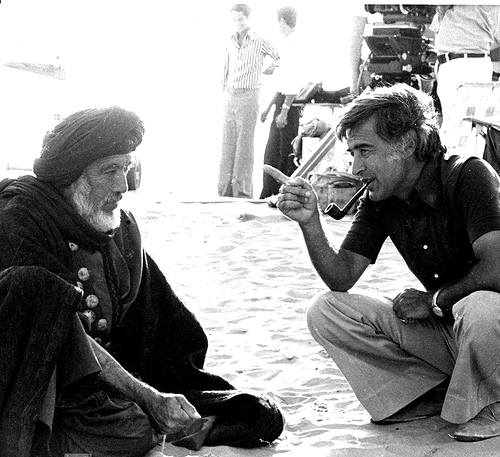Sessão Cinematográfica
"O Leão do Deserto"
Celso Rosa (CES)
19 de abril de 2011, 17h30
Mosteiro de Santa Clara-a-Velha
Filme: O Leão do Deserto
[EUA/Líbia, 1981, 173 minutos]
Sinopse: Dirigido por Moustapha Akkad. Discute a história da ‘pacificação’ da Líbia (conquistada aos Turcos em 1911) entre 1929 e 1931, período em que atingiram o auge as acções guerrilheiras de Omar Mukhtar, líder líbio.
Comentador : Celso Rosa
Enquadramento do Ciclo de Cinema e Debates «Encontros com a História»
A década de 60 inaugurou um novo momento político em África. Todavia, as transições para as independências foram acompanhadas, em vários casos, por situações de extrema violência, reflexo quer da complexidade política presente, quer da intolerância imperial. É objectivo deste ciclo (Iº semestre de 2011) ver e discutir estes filmes como testemunho político da construção do projecto das independências africanas, abrindo pontes para uma análise mais profunda dos vários sujeitos que estes ‘encontros com a história’ procuram resgatar.
Assim, este projecto tem por magno objectivo assinalar tais eventos e fomentar uma reflexão abrangente e multidimensional sobre a questão colonial, contribuindo para o necessário enriquecimento das análises sobre o tema.
Tal reflexão afigura-se especialmente importante por um vasto conjunto de razões. De facto, as leituras hegemónicas do colonialismo e a sua conceptualização predominante como mera relação política formal de dominação invisibilizam a complexidade e a diversidade das formas de dominação, exploração, violência e discriminação que o colonialismo engendrou. Mesmo focando a diversidade das experiências coloniais europeias em África, tais perspectivas universalizam a um tal ponto os modos de produção e exercício do poder colonial, que a vivências, experiências e resistências dos povos africanos tendem a ser narradas e interpretadas pelo olhar dominantes das ex-metrópoles.
Fazendo eco das propostas e das preocupações de um olhar pós-colonial crítico e emancipatório e procurando promover uma perspectiva comparativa alargada, pretende-se, assim, realçar a problemática do colonialismo de modo multidimensional, exercer o direito à memória e às verdades históricas e reflectir sobre as formas contemporâneas com que a experiência colonial se manifesta e se reproduz hoje.
A partir da visualização de filmes ficcionados, documentários e outro material histórico de época e da contemporaneidade, e procurando dar-se particular realce à cinematografia africana em clara reposta aos apelos pós-coloniais, promover-se-ão debates alargados sobre tal material.
Propõe-se a gravação pelo CES dos debates que poderão ser disponibilizados online.
O projecto terá dois momentos principais. O primeiro momento – a decorrer durante o I semestre de 2011 -, abordará as questões coloniais de uma ponto de vista mais global e transversal, para procurar contextualizá-las no terreno africano, ultrapassando o círculo restrito da Lusofonia. O segundo momento, a iniciar em Setembro de 2011, será constituído por mini-ciclos temáticos sendo cada um deles consagrado à experiência de países concretos. Saliente-se também que em cada um destes mini-ciclos temáticos, procurar-se-á abordar cada caso nacional de um modo multidimensional, o que implica a procura de material de época e da contemporaneidade.

